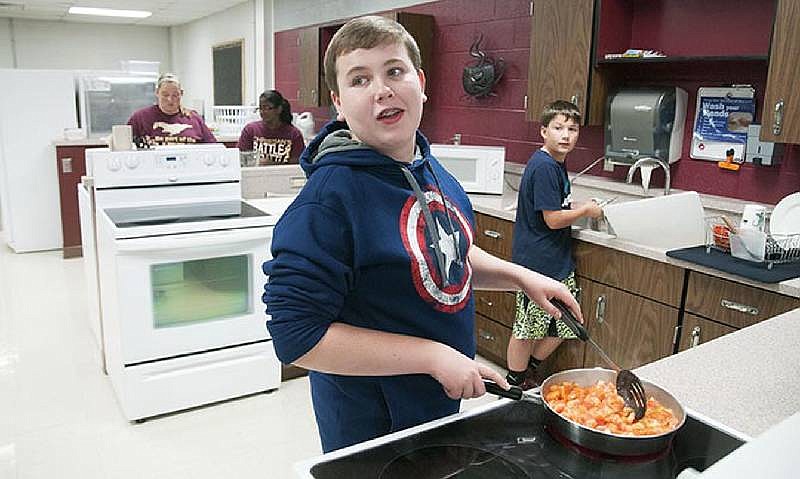A statewide organization leading an initiative to decrease childhood obesity released a progress report this week, showing how its efforts are affecting the health of Missouri's youth.
The Missouri Foundation for Health (MFH) established the Healthy Schools, Healthy Communities (HSHC) campaign in 2013 with the goal of decreasing obesity by 5 percent in five years among schools selected for the program. The report illustrates the program's effectiveness among more than 18,000 students in 24 school districts throughout rural and urban areas.
Between winter 2013 and spring 2015, the percentage of obese students in HSHC schools has decreased nearly one percent from 23.4 to 22.7 percent.
"Is there more work to be done? For sure. And we're looking forward to doing more work, but we're on the path we want to be on," said Deidre Griffith, HSHC program director. "It takes a lot of time to address obesity, especially the way that we're doing it."
The foundation chose Eldon in the program's first year, and Jefferson City and Versailles Schools joined in 2015. Grant funding for the schools is administered through Capital Region Medical Center.
To qualify, HSHC schools must have a free and reduced lunch rate of 60 percent or more. In Jefferson City, the program is in East, South, Thorpe Gordon and Callaway Hills elementary schools. Because those schools are in their first year, they are not included in the report. Ashley Varner, Jefferson City community coordinator, said the statewide report excites her to continue implementing the program in the Jefferson City area schools.
"It gives me great hope and momentum to continue the work that I'm doing because I'm seeing results statewide," she said.
Data from Eldon Schools is included in the full statewide report.
Among Eldon students, the percentage of obese students dropped from 23 to 22 percent. Tiffany Rutledge, corporate and community health supervisor with Capital Region Medical Center, said Eldon HSHC will have more comprehensive data when it weighs and measures children again in October, its third anniversary of the program.
Students in first, third, fifth and seventh grades are weighed. More of Eldon's first- and third-grade students recorded a healthier weight between winter 2013 and spring 2015. Third-grade students made the most dramatic increase, with 60.5 percent in the healthy weight range, up more than 3 percent. Fifth- and seventh-grade students gained weight, but by less than 5 percent each.
Moving forward, Griffith said HSHC will focus more heavily on healthy eating. The program has experienced successes with physical activity initiatives, but behavioral changes regarding nutrition have been more difficult to tackle.
In one area school, HSHC is teaching children how to use utensils because they have become so accustom to eating with their hands and out of boxes and bags, Rutledge said.
"We think we're just trying to come in and teach kids how to be active and make choices, but some of these children haven't had choices for healthy foods ever made available to them," she said. "They're not able to distinguish healthy food from junk food. Some of them can't even recognize certain fruits and vegetables - they have never been aware of that."
The report also shows a decrease in misconduct among Cohort 1 schools, accounting for nearly 13,000 Missouri students. Misconduct episodes dropped from 13,919 in the 2012-13 school year to 10,486 the next.
Eldon Schools reflected the statewide trend, decreasing from 1,327 misconduct episodes in 2012-13 school year to 1,215 in 2014-15.
"I think it's that the kids having an opportunity to be active and run off some of that stored energy," Rutledge said. "There's a lot of research that shows kids who have physical activity - even prior to school - focus a lot better that it does come time to sit and learn. "

